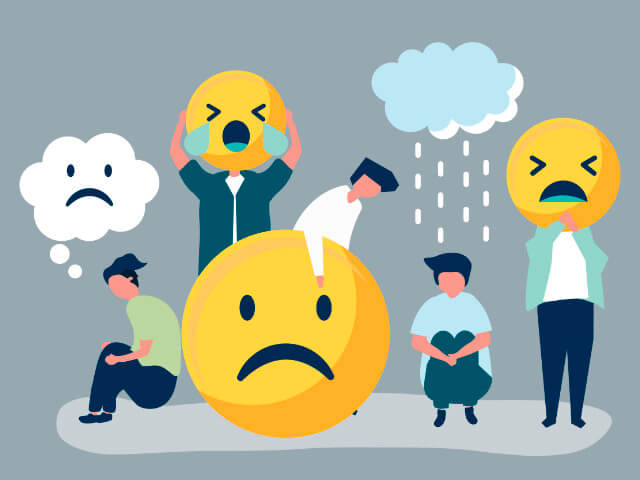Feelings about climate change
As you learn more about climate change and listen to answers by climate experts, you will probably experience lots of different kinds of feelings, some of which can be difficult. This is OK and very normal.
Sometimes our feelings can be uncomfortable, and they can become overwhelming. At these times, we need to find ways to bring our feelings back to a healthy balance.

Taking care of yourself
As you learn more, and listen to experts on climate change, we encourage you to find space to recognise and explore your feelings.
This could be through things like journaling, drawing, singing, writing, climbing a tree, going for a walk or talking through your feelings with trusted adults or peers.
Asking for help
You might also find it useful to reach out to other people who have similar thoughts and feelings about climate change and find ways that you can work together to help each other work for a safer climate.
If you are feeling really overwhelmed, find an adult you trust to talk to. This could be a parent or guardian, a teacher, social worker, a relative or your doctor. If you need someone to talk to straight away you can go to Kids Helpline https://kidshelpline.com.au/ or call 1800 55 1800.

A note for educators
These questions and answers are likely to raise a number of feelings for your students and maybe for you as well.
Help your students to explore how they feel. Encourage them to investigate how they are feeling and why they are feeling that way. It is important not to tell them there is no reason to be upset, or to rush to try to fix negative emotions. They are legitimate responses. Children need a safe emotional place to express their vulnerability. If your school has access to a counsellor or social worker, it would be helpful to liaise with them to offer students a person to talk to if they feel overwhelmed.

Validate students' feelings
Help your students realise that these feelings are normal and healthy and that others share them as well.
Support them. This could be by doing an activity as a class, going for a walk together, or having some time to journal or draw in response to listening to the climate change experts. Take time with your class to recognise feelings that you share.
Empower students to become part of collective solutions
You can remind them there are many people who care and are committed to making the world healthier and safer and they can be a part of that too. Perhaps explore, as a class or school, actions you can take, do some research together about different groups working to make the climate safer that staff and students could join, or learn more about actions students can do at home or in their communities and clubs.

Climate change is a challenging topic for all of us. Hearing these questions and answers will likely bring into focus your own complex feelings about climate change. If you need immediate support, you can contact lifeline at https://www.lifeline.org.au/ or 13 11 14.
Other resources:
https://www.goodgriefnetwork.org/
https://www.psychologyforasafeclimate.org/
https://www.existentialtoolkit.com/











